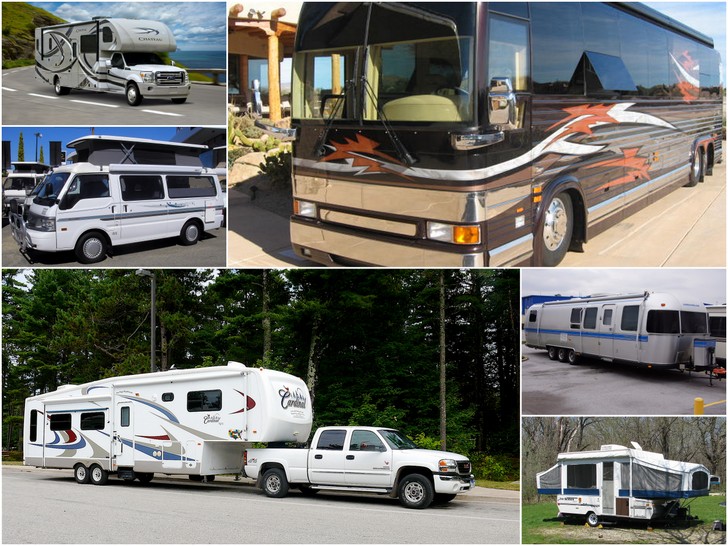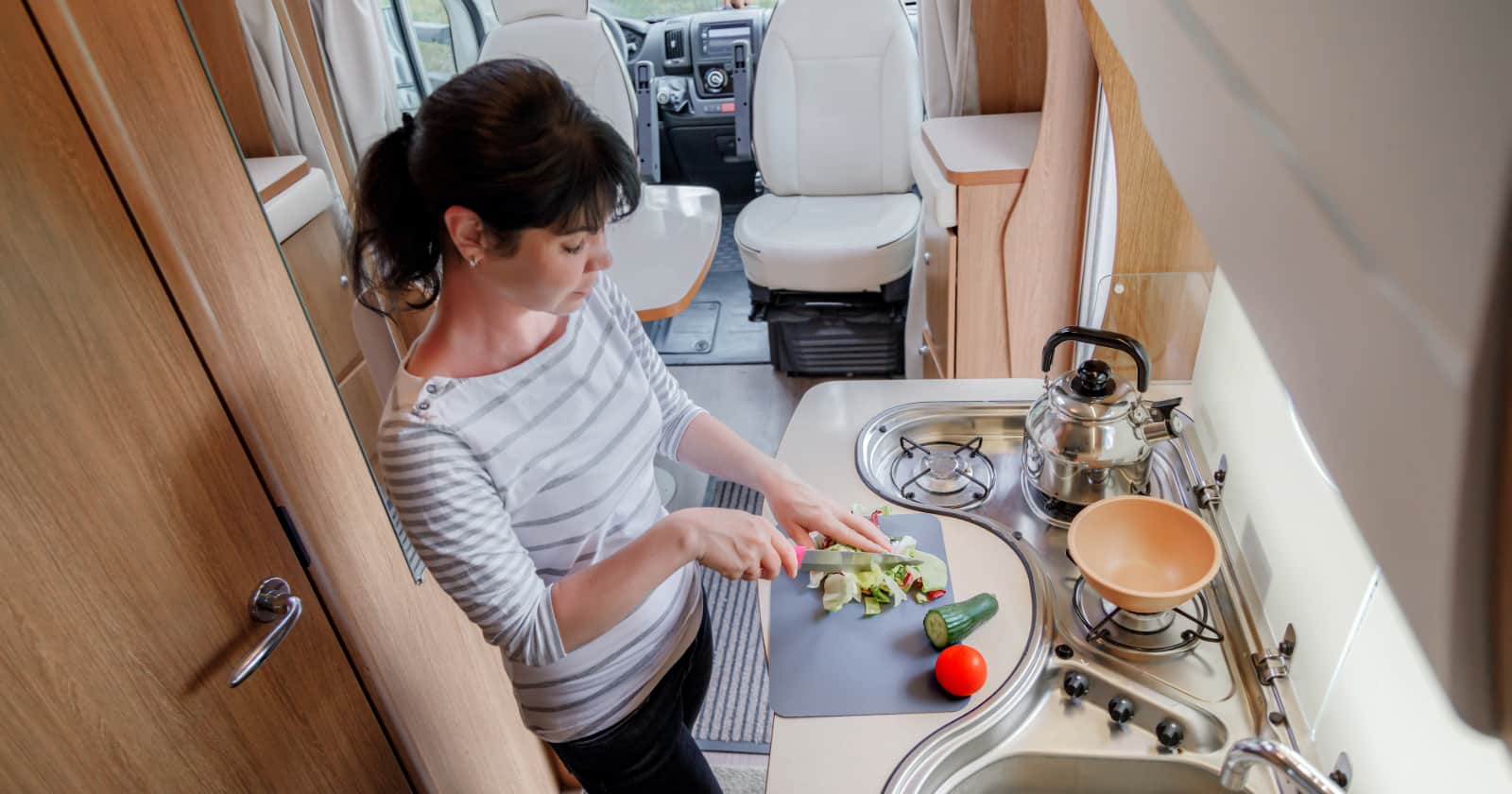Buying your first RV is both exciting and overwhelming. There is a seemingly never-ending variety of RVs to choose from — luxury motor coaches with four slides and all the bells and whistles, mid-size trailers that you can tow with your SUV, 4WD truck campers for tackling rough roads off the beaten path, and everything in between. With all of these options how do you know what kind of RV will suit you best?
Whether you are buying your first RV for occasional weekend use, or plan on adopting a whole new lifestyle by becoming a full-time RVer, start by asking the following questions before shopping for an RV.
1. What is your camping style?
When deciding what type of first RV is right for you, consider your camping style. If you intend to camp at forest service campgrounds and state parks with small sites, a 40-foot fifth wheel will limit your choice of sites and campgrounds. On the other hand, if you and your spouse want to spend six months parked at an RV resort, a 16-foot travel trailer might be a bit small for daily living.
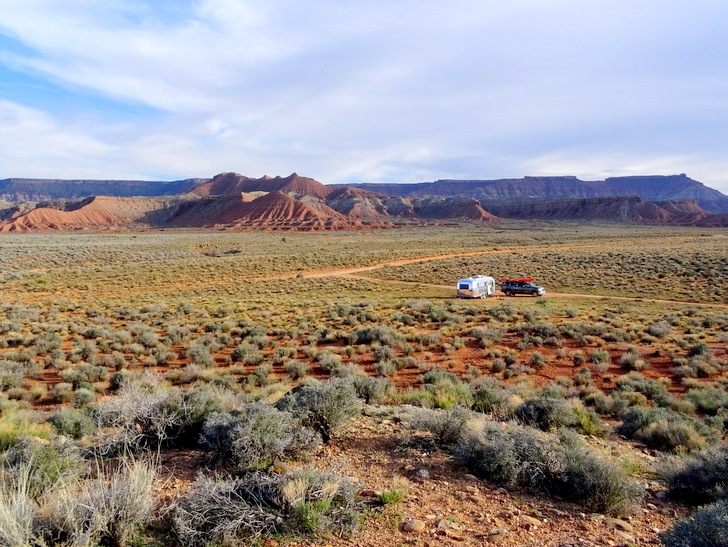
Think about what your intentions are for the RV. Will you be taking it on long trips with the entire family? In that case, you might consider a toy hauler fifth wheel with space for bikes, kayaks, and other outdoor toys. Are you interested in boondocking on public land far from civilization? A truck camper with high clearance for getting to those tough-to-reach places is ideal for this situation. Of course, there’s no rule that says you can only have one camping style. But knowing ahead of time what kind of camping suits your needs the majority of the time will help lead you to the right RV.
2. How often do you plan to use the RV?
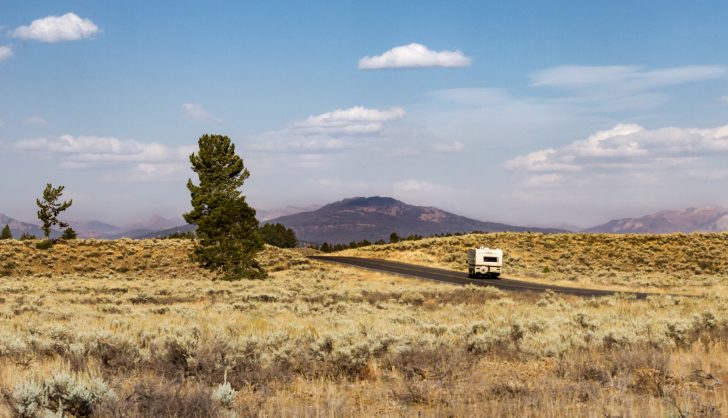
In addition to where you plan to camp, evaluate how much, and how often you will be using the RV. There is a big difference between living full-time in an RV and taking the family on a couple weekend vacations over the summer. If you plan to travel across the country in your RV, you will want a quality RV that can sustain the wear and tear that comes with long distance travel. On the other hand, if you only pack it up once a year for Memorial Day weekend at the lake, then investing in a large motorhome might not be worth it.
For an RV that is only used occasionally, be sure to consider where you will store it. Smaller trailers or van type RVs are easier to store in a yard or driveway, while larger motorhomes or fifth wheels might need to be stored at a facility with a monthly fee.
3. What type of “creature comforts” do you want?
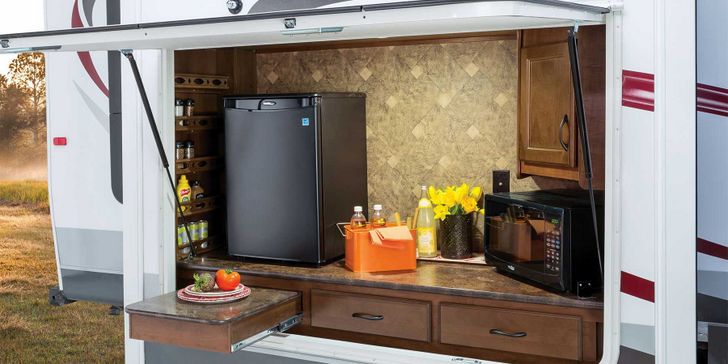
Let’s face it — many people buy an RV because it’s more comfortable than a tent and more convenient than a hotel. Indoor plumbing, a real bed with a mattress that you don’t need to blow up, and a place to prepare food so you don’t have to eat out every night are all factors that make RVs attractive.
Aside from the basics, consider what specific comforts are important to you. Do you want a large bed, a dinette that fits four, or plenty of space for the pets and grandkids? Maybe ample storage is a priority. Or maybe a large kitchen with residential fridge and a big pantry tops the list. Whatever you dream of, chances are there’s an RV out there that fits your needs.
4. What is your budget?

How much money do you realistically have to spend? Once you settle on a budget, stick to it! Going into debt for an RV that you can’t afford to use doesn’t make much sense. Remember that you can always add features and upgrades after the initial purchase. Buying something that you can afford makes much more sense than shelling out for all the bells and whistles from the start.
Keep in mind that RVs depreciate in value from day one. The hard truth is that unless you buy a vintage RV that holds its value, you will never be able to sell the RV for anywhere near what you paid for it. Even if you use it sparingly and keep it in “like new” condition.
If you plan to pay for the RV with a loan, consider getting pre-approved prior ahead of time. Call your bank or a local credit union and find out what your options are. Check out online sources such as Good Sam and Costco. Being pre-approved for a loan will make it much easier when you do find that perfect RV.
5. Will you buy used or new?
Some people wouldn’t dream of buying anything but a shiny new RV, while others like the idea of paying less for an RV that’s slightly used or in need of remodeling. There are many pros and cons to buying both new and used RVs.
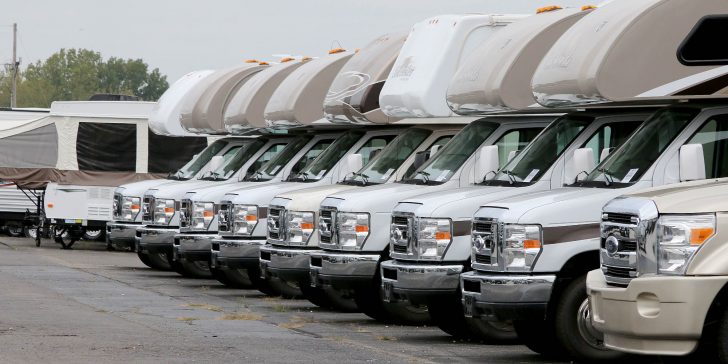
Newer RVs are attractive because they offer the latest gadgets, technology, and floor plans. You also have the peace of mind of knowing that there are no hidden issues that the previous owner “forgot” to disclose. For the first time RV owner, a new RV with a lifetime warranty is appealing. One of the best ways to get a feel for new RVs is to visit the factories where the different RV brands are manufactured. Many of the big brands are more than happy to give tours and provide you with information.
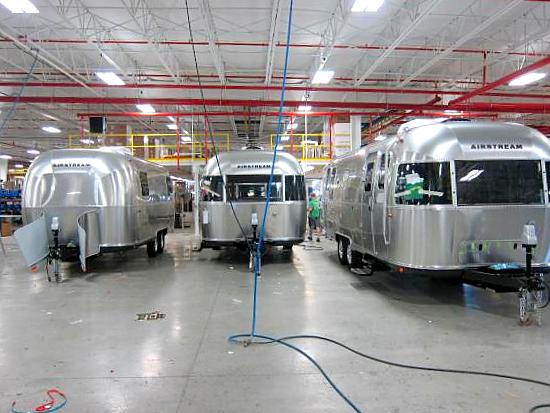
Used RVs generally fall into two categories. First, there are the gently used RVs that are traded in two to five years after the initial purchase. For a first RV, this type is ideal because you get a rig that already has the little bugs worked out but ideally is not so old that you will need to start replacing things.
The second type of used RV is older and in need of work or cosmetic renovations. For DIY types an older used RV could be a great choice. Not only can you get a great deal on a fixer-upper, but doing renovations gives you the chance to customize things to your liking. Keep in mind, though, that older RVs often come with hidden issues. It’s always a good idea to do a very thorough inspection before buying an older RV. Even then, you may want to set aside a repair fund.
Are you ready to buy your first RV?
There are many factors to consider when buying your first RV. After you’ve answered theses five questions go out and look at as many RVs as possible. Attend RV shows, visit the local dealership, or take a factory tour. Don’t discount the advice of seasoned RV owners. There are numerous online forums and groups where RV owners are more than willing to answer questions. If you’re really serious about finding the right RV, consider attending an RV seminar or rally like the ones put on by RV Dreams. Before you know it you’ll be enjoying the perfect RV for you and traveling the open road!

